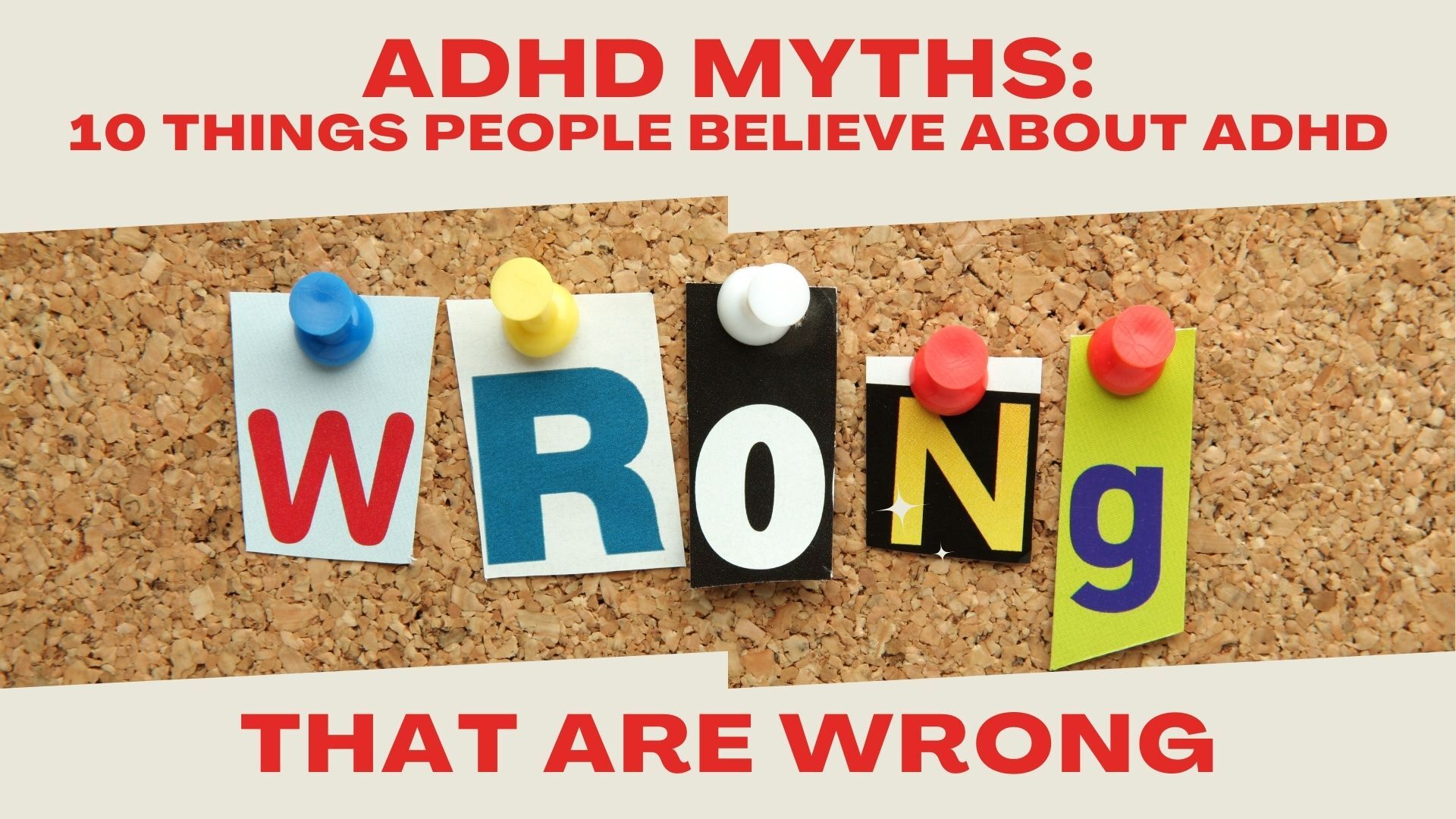ADHD Myths: 10 Things People Believe About ADHD That Are Wrong
ADHD is one of the most misunderstood and misrepresented mental health conditions. Myths and misconceptions about ADHD can contribute to stigma and misinformation, affecting those diagnosed and their families.

ADHD is one of the most misunderstood and misrepresented mental health conditions. Myths and misconceptions about ADHD can contribute to stigma and misinformation, affecting those diagnosed and their families. It's important to combat misinformation with some good old fashioned facts, so here is a list of 10 myths that get peddled about ADHD, and the truth.
ADHD Isn't Real
It's crazy that in today's day and age this one still floats around, but unfortunately it does. ADHD is recognised as a legitimate mental health disorder by major medical and psychological associations, including the World Health Organisation (WHO). It is characterised by persistent patterns of inattention, hyperactivity, and impulsivity that interfere with functioning or development.
ADHD Only Effects Children
Again this one is total nonsense. Very often ADHD is diagnosed in childhood because the symptoms and signs are generally more pronounced and obvious BUT up to 90% of children see their symptoms persist into adulthood. Many adults with ADHD were not diagnosed as children and may only discover their condition later in life when symptoms interfere with work, relationships, or daily responsibilities. It's estimated that only 11% of adults with ADHD are being treated for the condition.
ADHD Is Caused by Poor Parenting
ADHD is a neurodevelopmental disorder that combines multiple factors including genetic, neurobiology and environment. The condition is highly hereditable (around 60-70%). While parenting styles can influence behaviour, they do not cause ADHD. Stigmatising parents only causes feelings of shame and stress in the children and their caregivers.
Everyone has ADHD Symptoms
While it's true that many people may occasionally exhibit behaviours similar to ADHD symptoms, such as forgetfulness or restlessness, ADHD is diagnosed when these behaviours are chronic, pervasive, and significantly impair functioning in multiple areas of life. The best way to think about it is if you take the symptoms of the condition, people with ADHD will be in the top 5% of people suffering from those behaviours.
ADHD Is Just Laziness
I think this might be the one that is the most annoying, enraging and saddening if you have ADHD. ADHD is not a matter of willpower or motivation. It isn't because we just can't be bothered to do a task vs somebody else. Individuals with ADHD often struggle with executive functions such as planning, organising, and maintaining attention. These difficulties are neurological, not due to lack of effort or desire.
ADHD Medications Are Dangerous and Overprescribed
ADHD medications, such as stimulants, can be highly effective for many individuals when used under proper medical supervision. While concerns about overprescription exist, these medications are generally safe and can significantly improve quality of life when correctly prescribed and monitored.
ADHD Is A Boy's Condition
ADHD affects both males and females, full stop. The reason people assume it's a condition for boys, is because it very often presents differently. Boys are more likely to be diagnosed because their symptoms often include more overt hyperactivity and impulsivity. Girls with ADHD may exhibit more inattentive symptoms, which can be less noticeable and often go unrecognised.
ADHD Means You're Hyperactive
Not all individuals with ADHD are hyperactive. There are three types of ADHD: predominantly inattentive, predominantly hyperactive-impulsive, and combined presentation. Many people with ADHD primarily struggle with attention and do not exhibit hyperactivity. This leads to a lot of people not being diagnosed due to the symptoms not being as outwardly obvious.
ADHD Can Be Outgrown
ADHD symptoms can change over time, and some individuals may learn coping strategies that help them manage their symptoms better. However, ADHD is a lifelong condition for many, and symptoms can continue into adolescence and adulthood.
People with ADHD Can't Succeed
Many people with ADHD lead successful and fulfilling lives. Some of the most successful people in the world live with ADHD. Ever heard of Bill Gates, Richard Branson, Albert Einstein or Walt Disney? Yes, it presents it's unique challenges but also comes with its own superpowers that allow for different ways of thinking and more adventurous personalities.
Conclusion
Increased awareness and education can foster empathy, reduce stigma, and promote effective support for those affected by ADHD. Remember, ADHD is not a limitation but a different way of experiencing and interacting with the world.